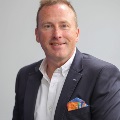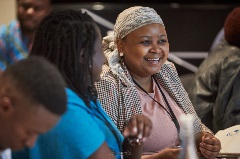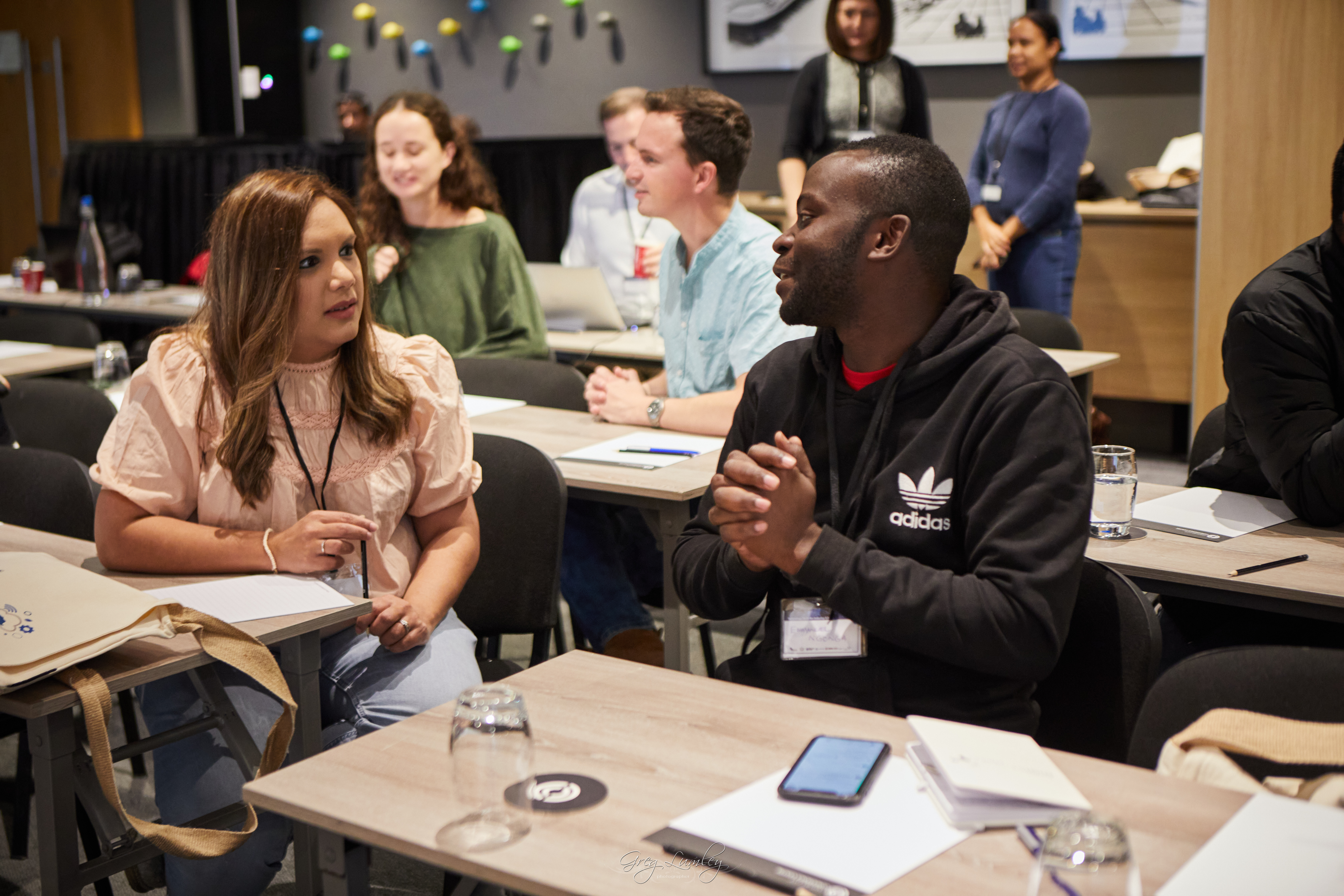Clinical Research in an African Setting
Over the last 6 years, There has been a significant increase in the demand for upskilling/reskilling across the world. Michael Makanga, the Executive Director at European & Developing Countries Clinical Trials Partnership, joined us to discuss clinical research in an African Setting and how do skills contribute to his objective in clinical trials initiative.
Clinical Trials Skills Agenda
Where we can make a difference is amongst policymakers that skills cannot just be an afterthought in the pursuit of the broad EU/Africa political Agenda, it needs to be central to that. Skills impact directing on people's lives, livelihoods, and ability to function. Therefore, it needs to be central to policy making. While there have been advances in this direction recently, I certainly feel that it is nowhere near enough and quite possibly, I do encourage the speakers this morning to put forward advanced recommendations that can be translated into policy agendas. In my view, I think there is plenty of money, but I think there needs to be enabling policies to accurately and concretely address these policies. With skills, there are many others to be concluded on a policy-making level. We need to contribute to the science and innovation agenda. In particular how science contributes to broader policy agendas in areas like skills, the green agenda and health.
Michael Makanga's Recommendations
We take this very seriously, as part of our mandate to accelerate the development of medical interventions, and clinical development and making sure that these products reach the people who need them most against infectious diseases in southern Africa. We take pasture development very seriously. I can’t emphasis enough the lessons that we have learnt from the covid 19 experience where capacity that has been viewed in this country has played a fundamental role in the response to the covid 19 crisis.
In looking at skills development, it is important to think long-term and sustainability. Meaning that the training that is planned should be part and parcel of the medium and long-term strategic planning of institutions and the plans for the institutions to move forward. I am speaking from the experience we have as we are working with 305 institutions in Africa and 303 institutions in Europe that are involved in collaborative projects. It is really important that the training that is done thinks long-term and sustainability of these individuals. This is the only way that you can optimally use the skills that are developed and also prepare an enabling environment for these people that are trained to operate. Additionally, this also takes into account, individuals that come on entering grants, maybe training outside and coming back to work in the host countries or individuals that are taken out on attachments to get specialised training and come back on reintegration plans. In that case, it has to be part of the medium and long-term strategic plans of the institution.
Flexibility and adaptability. It is important to think about cross-disease and interdisciplinary approaches to increase the impact of the training. We have seen this in the covid-19. As part of our response to Covid-19, we have 28 consultants working on covid-19 in Africa, Majority of these have been part of networks involved in research and development for other diseases but they have verified the expertise to work on covid-19 and in fact, the lead people that are working on the covid-19 response are the people who work on HATV, and other infectious diseases. So thinking flexibility and adaptability in the training of individuals is key.
Learning by doing. 86% of our investment is in research and development. 16% is on transformative capacity development. But we don’t do training in isolation. The training is integral in research and development. This way people get hands-on practical training as they execute in the implementation of the project themselves. In another scenario, we have a collaborative activity with Africa CBC, in the training of ecologists and biologists. What is key in this collaboration is that Africa CBC has a network of schools of public health as a backbone. In this case collaboration between European institutions and African institutions provides for the transfer of skills, but the people trained are really working from the ground in the context of public health in Africa, to be able to apply what they learn. Another example is our regional network of excellence is developing skills for clinical trials by really incorporating this in different studies that the institutions are involved in a collaborative manner. So people learn by doing.
Excellence, competitiveness and leadership. It is important that when you are training individuals or fostering skills transfer you promote excellence in the local environment. Having people that understand the local setting, to be able to address research needs locally. But at the same time ensuring that these people are globally connected. This now facilitates the skills transfer. It facilitates the re-training that goes on and the exchange of information from other settings and also fosters international collaboration in the research. The other dimension to add is promoting leadership. So that people start off by being dependent as they learn, then they become independent, then they become interdependent, but take on a leadership role in the research collaboration. We are seeing this happen, and in this case, it really positions the people that are trained in the global arena.
Addressing diversity. Addressing the inequalities that may relate to gender, language and geographical locations. You’ll find that there is a discordance, countries that may have the highest number of the disease may have the lowest capacity to deal with them. In that case, you have to address the inequalities, ensuring you train the people in those countries to get the expertise. This may require, pairing them up with established institutions, either in the country or out of the country. Part of the example that we have done is to establish regional networks of excellence that have complementary expertise in the regional settings to develop the capacity for clinical trials. Another thing involves reinforcing some funding to facilitate training for female scientists. For example, within the context of regional networks of excellence, we have provisions for extra funding for female researchers. Language is another aspect that we are trying to address. Collaboration is key. In fact, you will be surprised that now institutions in Mozambique, are in the top 10 for competitiveness in our research work. This is part and parcel of north-south collaboration that goes beyond the historical alliances so that these collaborations, that is mutually beneficial beyond the language barrier.
Return on investment. It is important to track the investments. We have established an alumni platform where we network all our former and current people to be able to exchange ideas, develop ideas corporately, do new research, and see what they are doing in the execution of their work and beyond the completion of their grants. This in itself requires defining measures of success. How do you define a successful skills transfer? We’ve looked at different ways of doing this. For example, additional grants are able to attract during and after the skills transfer, the work that they are able to do, and the role they have in the projects, they are involved in beyond their trading. For example, recent data has shown that over 60% of our people, post-training are taking on the principle data role meaning that they are leading the research groups and grants that they are taking on.

Dr. Ian Jones
Founder & CEO
Dr Ian Jones is the Founder and CEO of the Innopharma Group. He has worked for the past 25 years supporting high-tech manufacturing (particularly (Bio)pharma and Agri/FoodTech) where he has become a global thought leader on Industry 5.0 and the associated technologies and skills strategies to drive the digital transformation of these key industries. Ian holds a PhD in Process Analytical Technologies from Technological University Dublin and has studied Strategy, Leadership and Innovation at the Harvard Business School, Boston and Accelerated Growth Strategies at Judge Business School, Cambridge, UK. Ian also sits as an adjunct Professor within the Department of Chemical Sciences, Faculty of Science and Engineering at the University of Limerick, Ireland. Ian is driven by the mission to lead a team of educators and scientists who help people and businesses succeed in hi-tech manufacturing.
Read more...
Michael Makanga
Executive Director at European & Developing Countries Clinical Trials Partnership
Michael is a clinician scientist, resident in the Netherlands. He hold's a Bachelor’s of Medicine and Surgery Degree of Makerere University, Kampala, Uganda; a Master’s Degree (with distinction) in Pharmacology and Therapeutics from University of Liverpool; and PhD in Clinical Pharmacology and Therapeutics from Liverpool University/School of Tropical Medicine, United Kingdom. He has 25 years of health professional experience in Africa. This includes 21 years of work experience in tropical medicine and product development, and 16 years practical experience on clinical trials in various capacities in Africa and Europe. All his work is enriched with collaborative research and health research capacity management in an international environment. This includes working experience with government ministries, universities, hospitals, clinical research institutions and currently with a research funding agency. He has considerable practical experience in capacity development twinned with networking at individual, institutional, national and international levels especially in sub-Saharan Africa and Europe.
Read more...
Our Impact

INSIGHT
Best practice in Public-Private Partnership
Addressing the digital skills gap is urgent and immense in scale...
READeb0d4a02342f44fab6157a95024d5017.jpg?sfvrsn=a5220eef_0)
IMPACT
Case Study from our Digiskills Africa programme 2022…
After Kelly Nyanchama completed the Digital Transformation programme she gained a Bill & Melinda grant to fund a workshop in mathematical modelling for 30 people...
READINSIGHT
Equipping Africa with Digital Skills for the Future...
Our first cohort of Digiskills Africa run in partnership with SARAO was completed in November 2022.
READ



761418ab6f374c16bdb576b48600b730.tmb-medium.jpg?sfvrsn=6f23548d_1)
